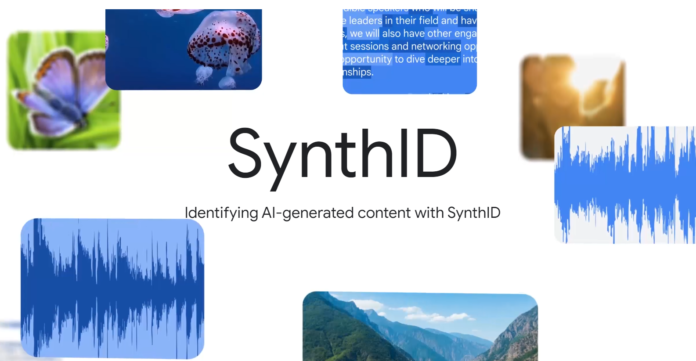How can you be sure if the content you are consuming is authentic information or AI-generated? Google DeepMind has developed a solution for this. SynthID is a tool that can embed digital watermarks in AI-generated content, including images, text, videos, and audio. This further helps you identify whether the content is AI-generated. It is open-source and accessible through Hugging Face and Google’s Responsible GenAI Toolkit.
Here is a brief rundown of how SynthID works. LLMs utilize probability models to predict the next token (word or phrase) and assign potential outputs with probability scores. The higher the score, the higher is the chance of LLM choosing those words to generate text. This creates the pattern of scores for the model’s choice of words.
SynthID slightly alters the token probabilities generated by LLMs without compromising the accuracy and readability of the content. The combined patterns of the model’s probability score and the tweaked probability scores form the watermark. This unique identifier cannot be detected by humans.
Read More: Meta Announces Open-sourcing of Movie Gen Bench
While this watermarking tool for AI content can work on cropped and mildly paraphrased text, it has some limitations. SynthID finds it difficult to detect AI footprints if the content is too short, has factual information, is heavily rephrased, or is translated into a different language.
Despite these challenges, Google’s SynthID has immense potential. It can be used across several industries to improve people’s experience with AI. This tool can help protect creators’ rights related to intellectual property, verify the authenticity of news, and identify deepfakes used for malicious purposes. SynthID can enhance the trustworthiness, accountability, and transparency of digital content over the Internet.
The report by Europol Innovation Lab details the potential harm AI-generated content can cause, such as document fraud, spreading misguided information, and misleading law enforcement. It highlights the dire need to establish new laws that regulate the usage of AI while ensuring ethical and responsible practices are implemented. Google has taken a step in this direction by developing SynthID.


